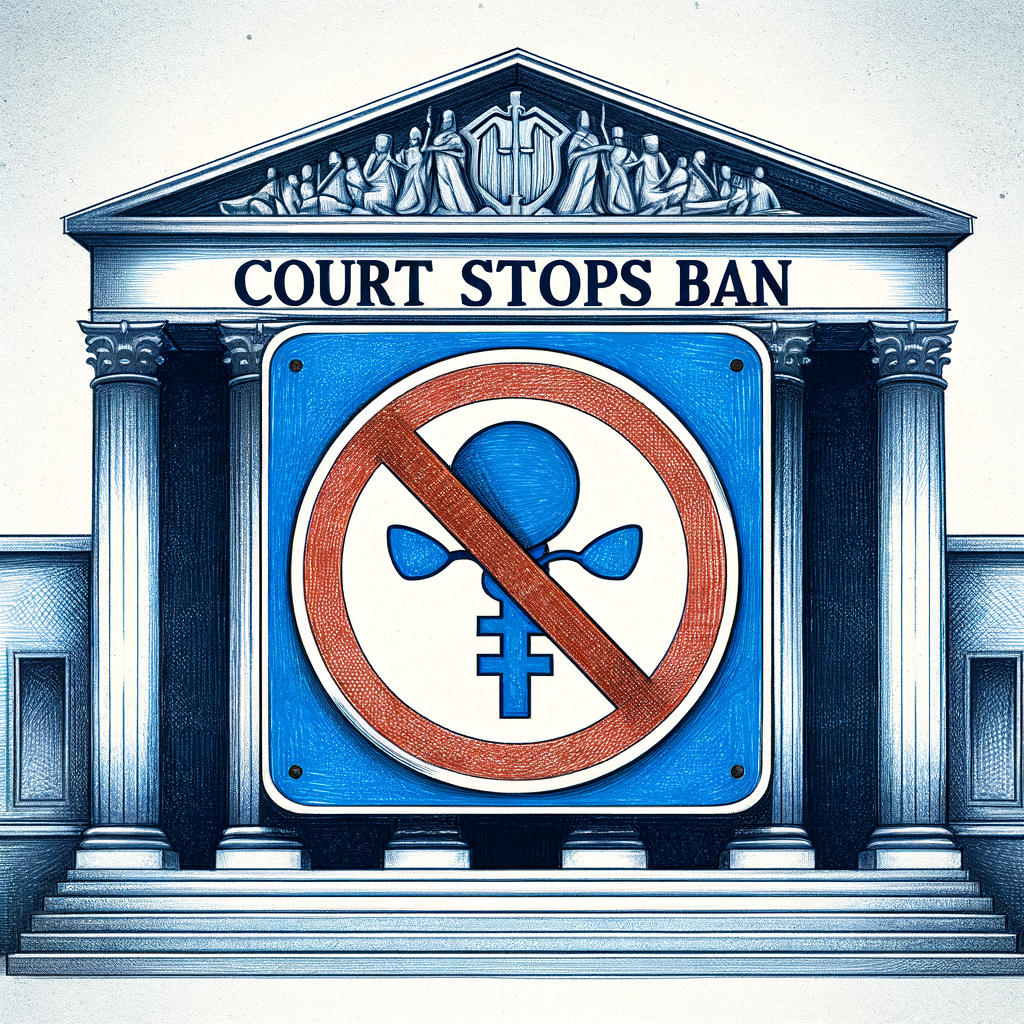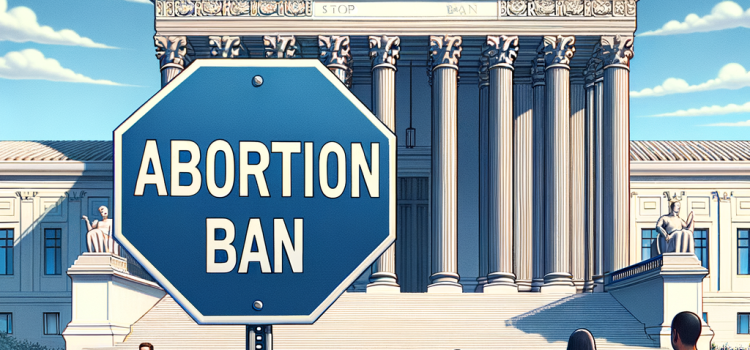
Introduction
In a pivotal ruling, the U.S. Supreme Court has temporarily blocked Idaho’s near-total abortion ban, allowing emergency abortions to continue for the time being. This decision marks a significant victory for reproductive rights advocates who have fought to safeguard access to essential healthcare in the state.
Background
In 2020, Idaho enacted a law known as the “Texas-Style Abortion Ban,” which prohibits abortions after six weeks of gestation, before many women even realize they are pregnant. The law also criminalizes abortion providers who violate the ban, potentially subjecting them to up to five years in prison.
Proponents of the ban argued that it was necessary to protect the lives of unborn children. However, opponents condemned the law as unconstitutional and discriminatory, arguing that it would disproportionately harm women of color, low-income women, and survivors of sexual assault.
Legal Challenge
Following the passage of the ban, the Center for Reproductive Rights (CRR) and Planned Parenthood Federation of America (PPFA) filed a lawsuit challenging its constitutionality. They argued that the ban violated the Supreme Court’s landmark ruling in Roe v. Wade (1973), which established a woman’s right to choose to have an abortion.
The case made its way to the U.S. Supreme Court, which in December 2021 agreed to review the lower court’s decision that had blocked the ban.

Supreme Court Decision
On April 25, 2022, the Supreme Court issued a 5-4 ruling that temporarily blocked the Idaho abortion ban. The ruling was not a final decision on the merits of the case but rather a temporary measure to prevent irreparable harm to women while the lawsuit proceeds through the lower courts.
The majority opinion, written by Justice Stephen Breyer, emphasized that Idaho had not demonstrated a sufficient interest in banning pre-viability abortions. The Court also noted that the ban would have a “disproportionate impact” on women who are most vulnerable.
Reactions
The Supreme Court’s decision was met with relief by reproductive rights advocates and condemnation by anti-abortion groups.
Alexis McGill Johnson, president of Planned Parenthood, praised the ruling as “a victory for women in Idaho and for the rule of law.” She emphasized that “all people deserve the right to make decisions about their own bodies, including whether or not to have an abortion.”
On the other hand, Idaho Attorney General Lawrence Wasden expressed disappointment with the decision. He vowed to “continue to defend Idaho’s laws and protect the unborn.”
Implications
The Supreme Court’s ruling has several important implications:
- Protects Emergency Abortions: The ruling ensures that women in Idaho can still access emergency abortions if they need them. This is critical for cases of rape, incest, or when the pregnancy threatens the life of the mother.
- Challenges Abortion Bans: The ruling sends a clear message that the Supreme Court is not willing to rubber-stamp state laws that seek to restrict abortion rights. This could embolden legal challenges to similar bans in other states.
- Roe v. Wade Remains Intact: The decision does not overturn Roe v. Wade. However, it does indicate that the Court may be less willing to uphold abortion restrictions that place an undue burden on women seeking care.
- Heightened Scrutiny for Abortion Restrictions: The ruling suggests that states will now have to provide strong evidence of a compelling government interest in order to justify restrictions on abortion.
Conclusion
The Supreme Court’s decision to temporarily block Idaho’s abortion ban is a significant victory for reproductive rights. It protects women’s access to essential healthcare and challenges the growing wave of state laws designed to restrict abortion.
While the ultimate fate of Idaho’s abortion ban remains uncertain, the Supreme Court’s ruling has reassured women that their right to make decisions about their own bodies remains intact. The fight for reproductive freedom continues, but this decision marks an important step forward in protecting the rights of women in Idaho and across the United States










